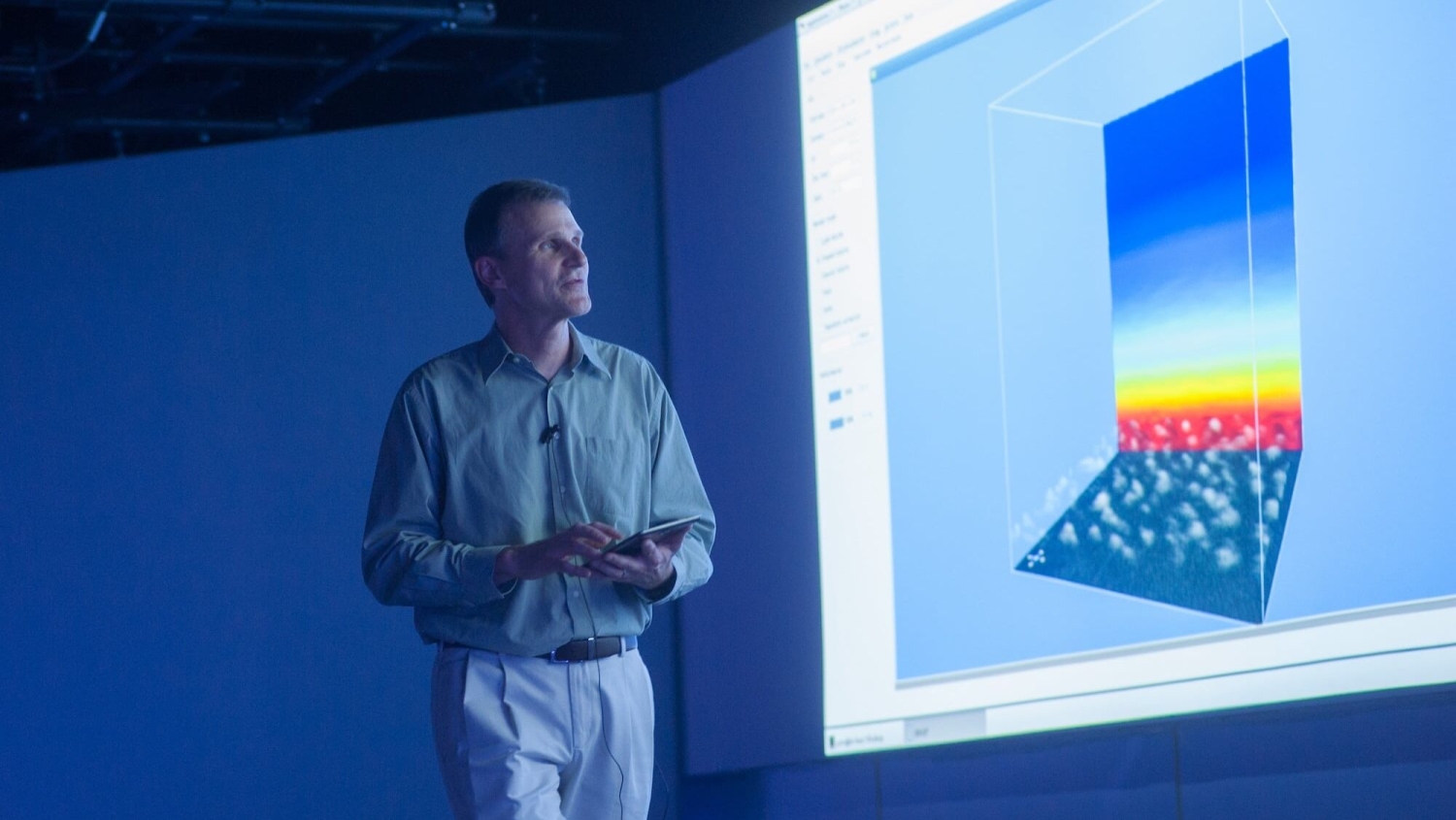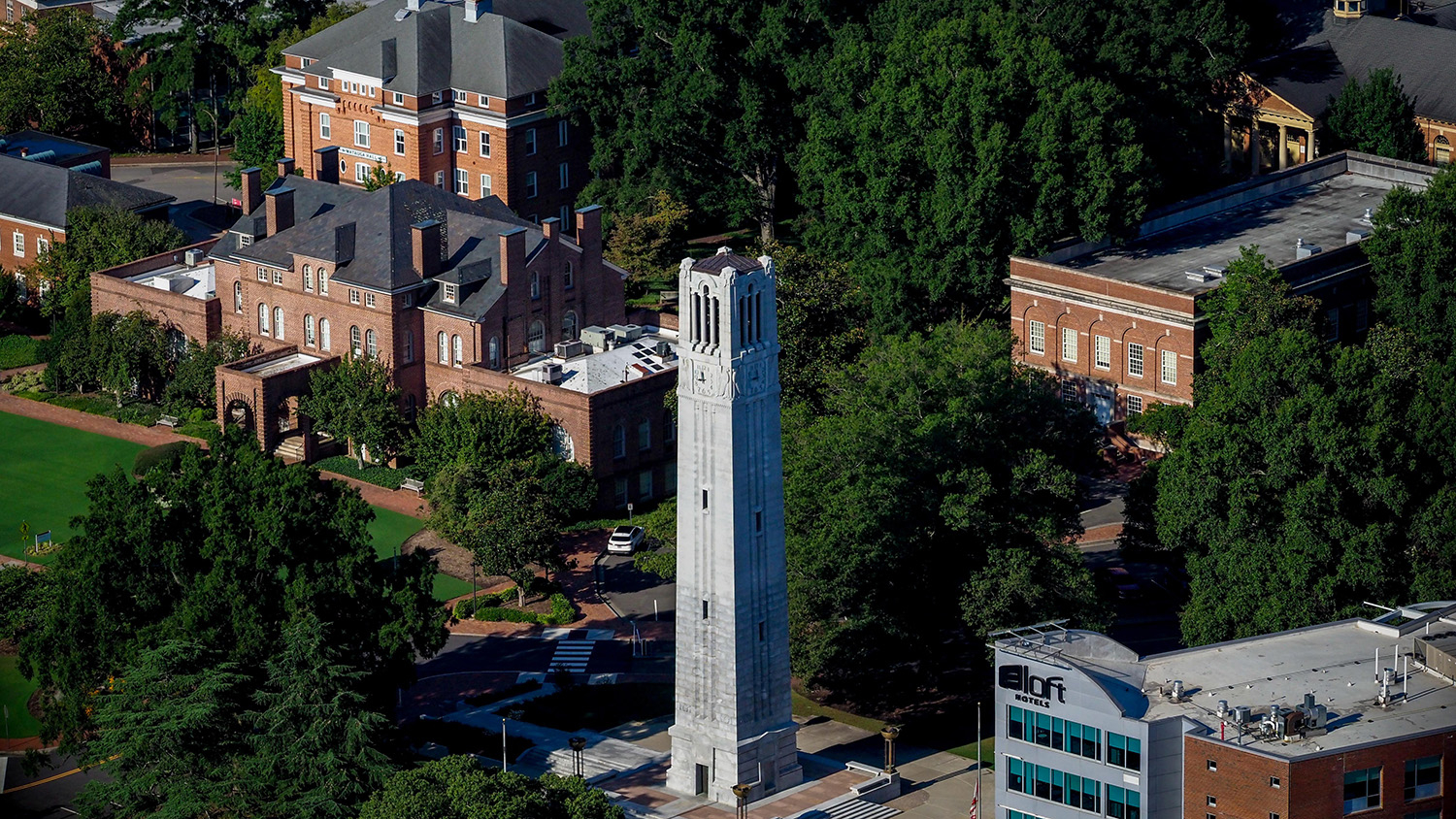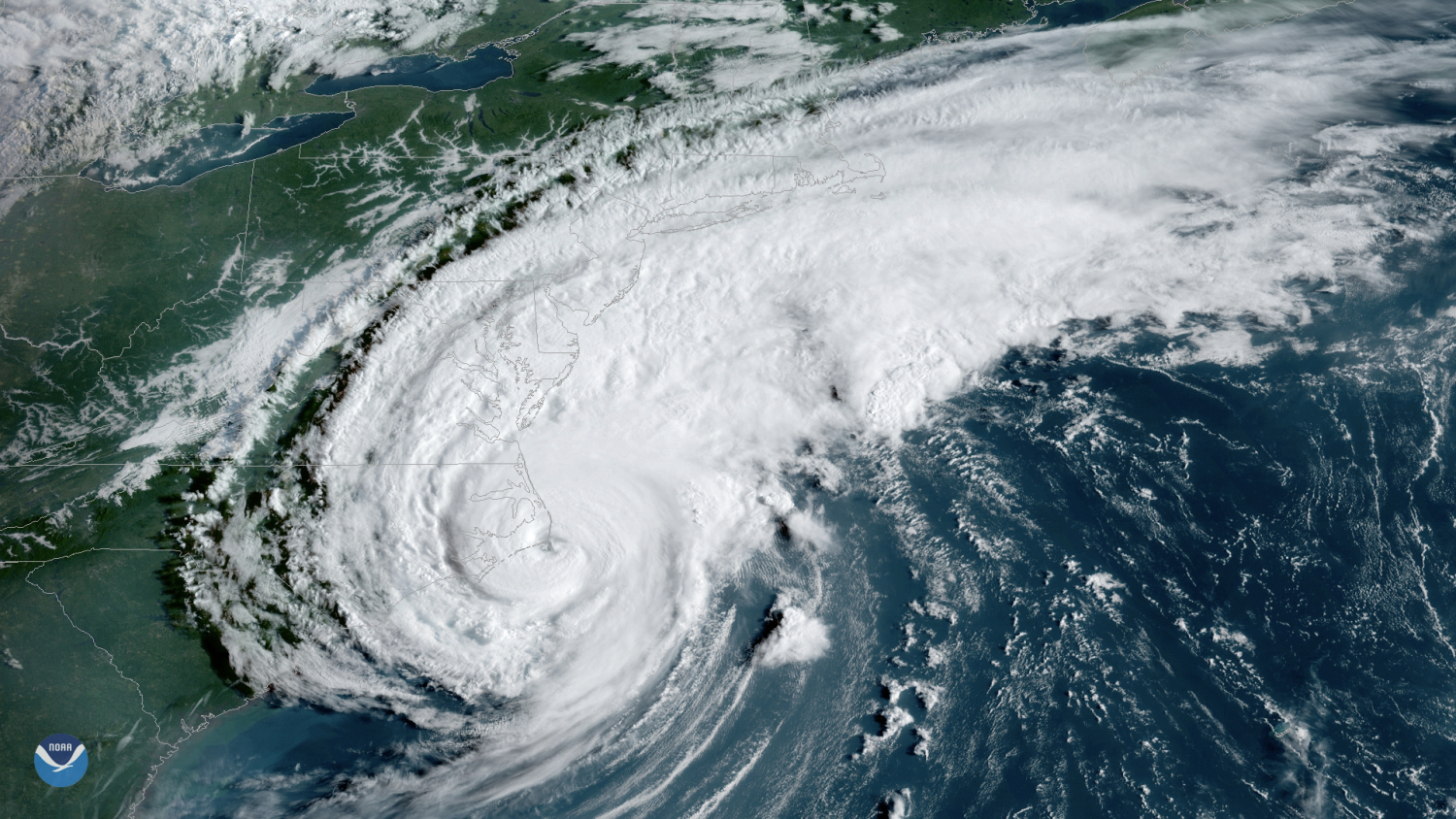Forecast: High Probability of Success
When Clay Chaney was growing up in Shelby, North Carolina, his siblings didn’t want to give him the television remote control because they knew what they’d end up watching: the Weather Channel. Every time.
Chaney remembers his fascination with the weather beginning around age two. That passion for precipitation combined with a dose of self-determination were the push Chaney needed to pursue his dream to become a meteorologist.
At the same time, he faced a few challenges that could have held him back. He grew up in a low-income part of Shelby. His dad served four years in prison, beginning when Chaney was a toddler. There were times his family struggled to pay the bills. They had to think carefully about the money they spent on items like groceries, and sometimes needed a little help from family members.
Chaney earned good grades from a young age, and said he felt that set the expectation that he’d succeed. He didn’t want to disappoint people by not following through on his potential.
“I wanted to set a new foundation for those who were stuck in the same situation as me,” he said. “If I took that route, I could lead others.”
When it came time to apply to college, in-state tuition made sense and Chaney focused on North Carolina schools with strong meteorology programs. NC State was at the top of the list, but he knew he’d need financial assistance to attend.
When he received an offer of support through Pack Promise, Chaney jumped at the opportunity. The program was created as one way that the university assists low-income students from North Carolina. Pack Promise guarantees a package – including grants, scholarships, a work-study job and loans of no more than $3,500 per year – to meet all of recipients’ financial needs, and provides some academic support.
Chaney visited NC State twice during the application process, noting it had everything he wanted: a strong meteorology program, reputable faculty, a larger size and city location, and great sports teams – another passion of his.
“It felt like home,” Chaney said.
The financial and other support he received from the university and programs like TRIO seemed almost surreal.
“That sealed the deal,” he said. “And I can’t put into words how much this program has actually helped me.
“They immediately give you the sense that they want you to come here and succeed.”
On campus, Chaney joined various meteorology-related clubs, from broadcasting to forecasting. He conducted research on “African Easterly Waves Becoming Tropical Cyclones in the Eastern Pacific,” which provided him and his research partner the opportunity to present in the student section of the American Meteorological Society’s 2019 annual meeting in Phoenix, Arizona.
Chaney joined a fraternity and served as an officer there for a year, as well as a student senator in the College of Sciences during his junior year. At the same time, his work-study experiences ranged from positions with Howling Cow ice cream to the Wake County Boys and Girls Club. And somewhere in there, he found time to play intramural sports.
During his senior year, Chaney landed an internship with WRAL-TV in Raleigh, where he worked with the meteorology team when Hurricane Florence hit and when snow fell that December.
“I learned a lot out in the field, and seeing what happens behind the scenes – what they do, how they present themselves on the green screen, how they make their audience feel involved, how they reach them, and help them understand weather in simpler terms,” he said.
Three days before he graduated, Chaney received a job offer from AccuWeather, based in Pennsylvania. He began his job as an operational forecaster on July 1 with three weeks of intensive training, and he continues to train and work for the company. Just a few short months into his job, he has already been quoted in articles by msn.com and the Daily Mail in the United Kingdom.
Chaney said the people he met at NC State and the network he created had a huge impact. Coming from a small town, where he said “everybody knows everybody,” to the university gave him an opportunity to broaden his horizons and network.
“That helps lead to a better future,” he said. “In today’s age, the more people you know, the better – that’s the one thing I knew would help me out, coming from a low-income family and as a first-generation college student.”
Chaney is also thankful for the grandparents, aunts, uncles and cousins who supported him over the years, in addition to his two sisters, stepbrother, mother and stepfather. His relationship with his father grew over the years, too, as he said his dad did some growing up right alongside him.
“I’m grateful for the life I have,” he said. “I have a lot of great family members that helped me.”
This post was originally published in Giving News.


